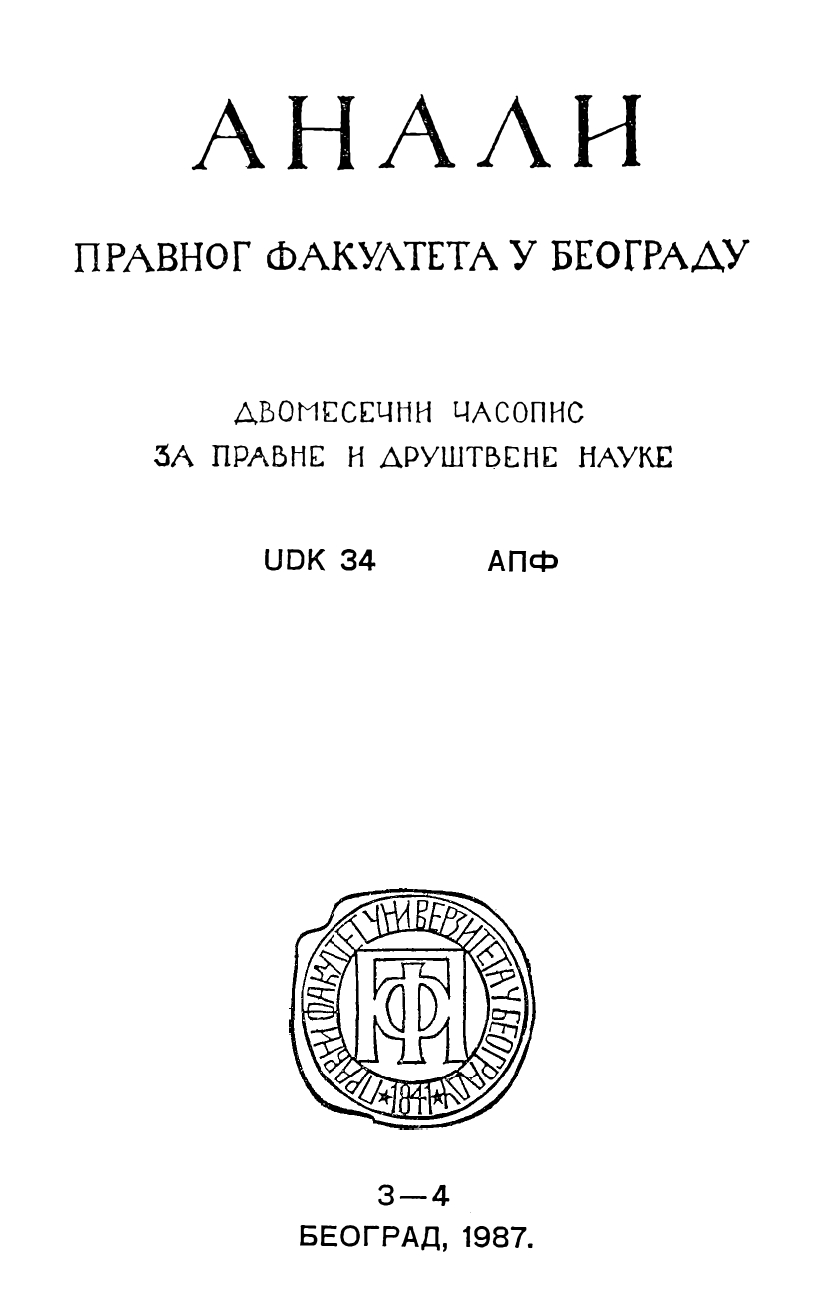ОБЛИК ДРЖАВНОГ УРЕЂЕЊА ПРЕМА НАЦРТИМА ПАРЛАМЕНТАРНЕ ОПОЗИЦИЈЕ У КРАЉЕВИНИ СХС У ВРЕМЕ ДОНОШЕЊА ПРВОГ ЈУГОСЛОВЕНСКОГ УCTABA
THE FORM OF STATE ORDER ACCORDING TO THE DRAFTS OF THE PARLIAMENTARY OPPOSITION IN THE KINGDOM OF SERBS. CROATS AND SLOVENIANS AT THE TIME OF ENACTING OF THE FIRST YUGOSLAV CONSTITUTION
Author(s): Olga PopovićSubject(s): Politics / Political Sciences, History, Law, Constitution, Jurisprudence, Constitutional Law, Recent History (1900 till today), Interwar Period (1920 - 1939)
Published by: Правни факултет Универзитета у Београду
Summary/Abstract: Two groupings have existed among opposition political parties represented in the constituent assembly of the Kingdom of Serbs, Croats and Slovenians, according to their attitude regarding the solution of the problem of regions or provinces in the common state. The one has been made by the parties which in terms of the general lines of this problem have been more or less close to the conception of Pašić’s radical-democratic government. At the division of the state into districts, they rejected, in principle, any falling back to historical borders, while in the sphere of regulation of relations between the regions and the central power of the state, they opted for the classical form of a unitary state, although with some more decentralisation of the executive branch as compared to the constitutional draft by the goverment. This group has been made by the Farmers’, Socialist and the Republican parties. The opposing side was taken by the National Club (Croatian Community), the Yugoslav Club and the Yugoslav Muslim Organisation. Their drafts had two basic joint characteristics, namely: firstly, all had envisaged large regions whose frontiers were partly corresponding to historical administrative-political entities, while partly they were, in relation to them, changed in concordance to respective national, namely political-territorial community; and secondly, they have prescribed the decentralisation of legislative power favouring the regions, namely provinces, which meant departing from the frameworks of classical unitary state. Thes drafts were, on the other hand, rather dissimilar regarding further position of provinces. First of all, the Yugoslav Muslim Organisation did not provide for the participation of provinces, as such, in enacting of constitution and state laws, which meant keeping in the sphere of decentralisation of power at the lavel of the state-legal autonomy. As opposed to that, constitutional drafts of the National and Yugoslav clubs provided for the participation of provinces in the central legislative and constitutive powers, by which they ensured to the state the character of a federation. However, regarding the real degree of independence of the provinces as federal units, the draft of the National Club went condierably further than that of the Yugoslav Club. This refers, first of all, to the larger number and significance of affairs left over to genuine legislative power of the provinces and, secondly, to considerably larger participation by these units in the constitutive power. This last right of provinces, i.e. the right of participation in the state constitutive power according to the draft of National Club, had to be realized in three ways: (i) by way of constitutional initiative of the chamber where provinces are represented as such, (ii) by a constitutional initiative of the provinces themselves, and (iiii by the right of every province to veto the proposed constitutional changes by which the jurisdiction of provinces is interfered with. By this last power, the draft of the National Club has approached the status of provinces to that of members of a confederation. The draft of the Yugoslav Club, on the other hand, did not leave the frameworks of a federative state with relatively narrow jurisdiction of the member-states, both in the above respect and in relation to the width of own legislative power of the provin ces. Namely, the participation of provinces in the constitutive power ends up with the right of the chamber representing the provinces to propose a change in the constitution in a limited number of questions, as well as with the participation of provincial representatives in the decision-making along the procedure envisaged for enacting the laws and statutes.
Journal: Анали Правног факултета у Београду
- Issue Year: 35/1987
- Issue No: 3-4
- Page Range: 384-404
- Page Count: 21
- Language: Serbian

